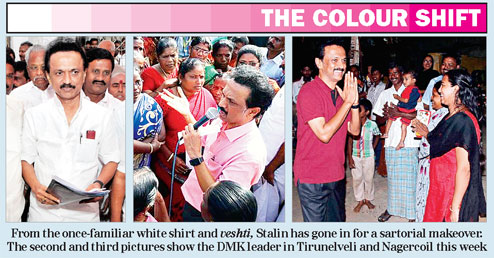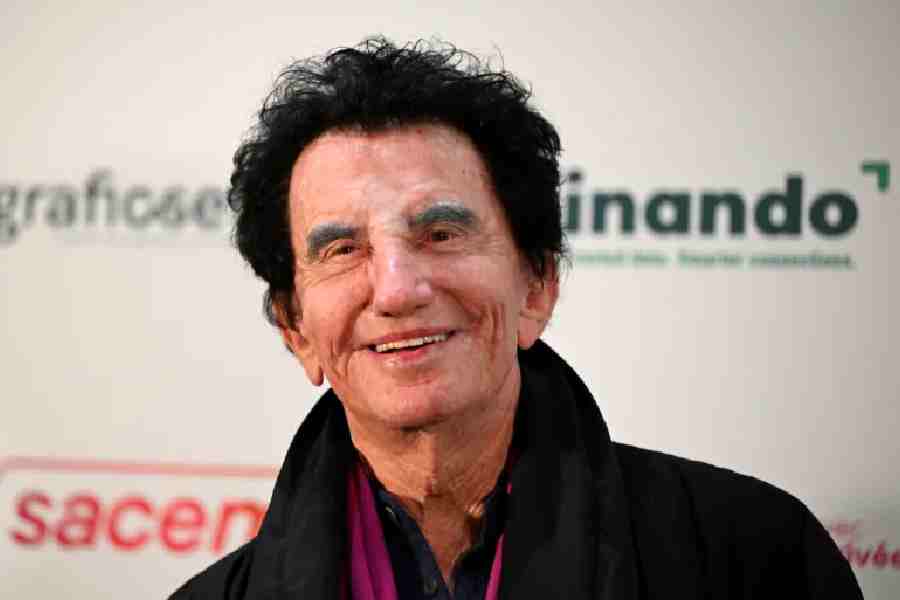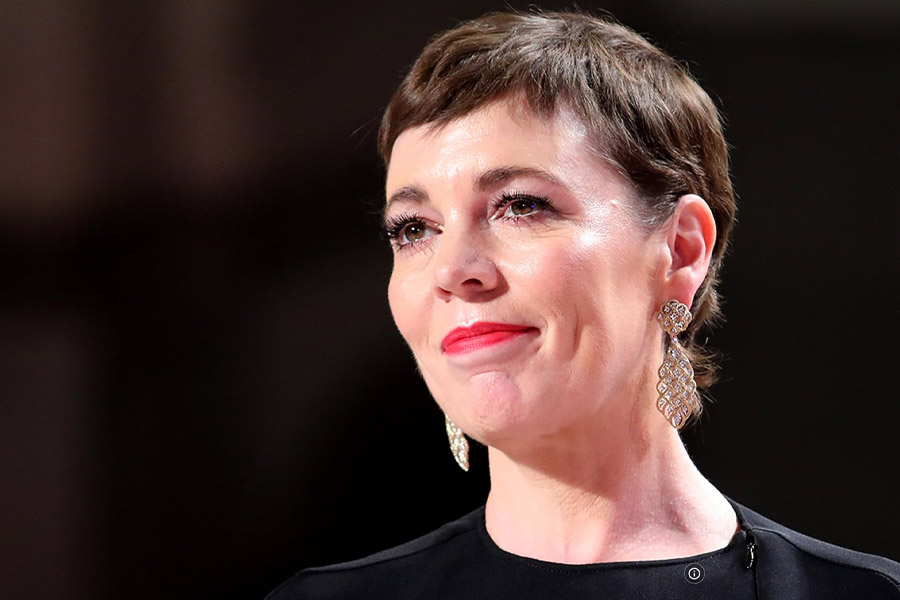
Chennai, Sept. 24: The plain, starched white veshti (dhoti) and shirt with matching white chappals have given way to black trousers, sports shoes and a pink full-sleeve shirt or colourful T-shirts.
M.K. Stalin, 62, no longer waves at crowds from behind the windows of his air-conditioned SUV. Instead, the DMK treasurer and chief ministerial hopeful walks the dusty roads or rides an auto-rickshaw or a scooty, talking directly to voters and, more important, listening to them.
Stalin, who began a state-wide tour on Sunday from south Tamil Nadu, determined to cover all the 234 Assembly seats well ahead of next summer's Assembly polls, has surprised friend and foe with his latest makeover.
Gone is the somewhat stiff, diffident politician surrounded by hangers-on. In his place has emerged a man with a friendly smile who warmly shakes schoolchildren's hands and talks to factory workers at their sheds and to women in front of ration shops and temples.
"He asked us whether we get drinking water regularly at our homes. When we said we didn't, he asked us to question the local mayor and councillors," said Umarani, a homemaker from Tirunelveli town.
The friendly, direct style is part of a plan to present Stalin as an approachable and "caring" leader. The changed attire and energetic gait are aimed at impressing the younger voters. Stalin's slight build is an advantage here, making the man with four grandchildren look younger than his years.
He recently launched an app to target the mobile-obsessed and addressed students of colleges run by DMK bigwigs. He has released a short video, showcased by LED-lit party campaign vans, which features youngsters ruing how their dreams have been shattered by an apathetic Jayalalithaa government.
"Get angry, you have a right to," Stalin exhorts the youth in the video.
T.M. Selvaganapathy, a former DMK parliamentarian, explained the strategy of targeting the youth.
"Eighty-five lakh new voters will vote in next year's Assembly elections. Add the first-time voters who voted last year (in the general election), and you have nearly 1.5 crore young voters," he said.
"That so many of them are jobless despite holding degrees makes them a restive lot. So, Stalin talks about issues that directly affect them - unemployment, and the closure and flight of industries from the state - with the promise of reviving the state's economy and finding them jobs."
Yet, the success of Stalin's ambitions hinges on persuading not just the state's millions of young voters but also a 91-year-old man closer home.
It's unclear whether Stalin's father and party patriarch Karunanidhi would readily vacate his claim to the chief minister's post and project his son.
The younger voters, who are being so assiduously wooed, might baulk at electing a nonagenarian and may find Jayalalithaa, 67, a safer bet.
"If Stalin is campaigning to make his father the chief minister, he may not succeed. But if Stalin presents himself as the DMK's chief ministerial choice, people like us may see him as an alternative who deserves a chance," said T. Manikandan, who works at a Chennai BPO.
But Karunanidhi's attachment to the chair and his penchant for using elder son Alagiri's objections to Stalin as a pretext has often stopped the younger son in his tracks. Stalin's changed attire and approach will do him little good unless the DMK, especially its first family, sorts out its internal wrangles.











